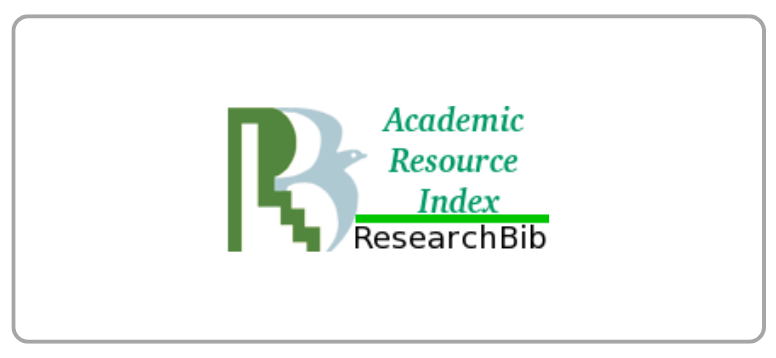The Effectiveness of Collaborative Writing Strategy (CWS) in Writing Lesson Regarded to The Students’ Creativity
DOI:
https://doi.org/10.21512/lc.v10i2.898Keywords:
CWS (Collaborative Writing Strategy), MWS (Metacognitive Writing Strategy), Creativity, Narrative EssaAbstract
This study is aimed at finding out what appropriate methods to be usedin writing lesson seen from the students’ creativity especially for studentswho have high creativityand low creativity. This study used quasi experimental research. The population of the research was the eighth grade of a Junior High School in Wonosari in the academic year of 2013/2014. The sampling technique used was cluster random sampling. The sample in this study was 64 students covering 32 students of E as experimental class and 32 students of C as control class. The data or the students’ writing scores were analyzed in terms of their frequency distribution, normality, homogeneity, then ANOVA and Tuckey tests to test the research hypotheses. Based on the result, the research findings are: CWS is more effective than MWS in writing lesson; the high creativity students produced better writing rather than the low creativity student; and the interaction of teaching methods and the students’ creativity is existing in this writing lesson. In short, Collaborative Writing Strategy (CWS) is effective to teach writing for the eighth grade of a Junior High School in Wonosari, Gunungkidul. Then, the research result implies that it is better for the teachers to apply CWS in teaching and learning process of writing, to improve the students’ writing achievement, CWS needs to be used in the classroom activities, then future research can conduct the similar research with different sample and different students’ condition.
Plum Analytics
References
Becky & Spuvey. (2006). Innovative teaching. USA: Gorsuch.
Brown, H. D. (2004). Language Assessment: Principles and
Classrom Practice. New York: Pearson Education.
Carter, P., & Russell, K. (2003). More Psychometric Testing: 1000 New Ways to Assess Your Personality, Creativity, Intelligence And Lateral Thinking (The IQ Workout Series). Mankato: Capstone.
Coulmas, F. (2008). English Monolingualism in scientific
communication and progress in science, Good or Bad?. AILA Review, 20, 5-13.
Diaz, V., Golas, J. M., & Gautsch, S. (2010). Privacy Considerations in Cloud-Based Teaching and Learning Environments. EDUCAUSE Learning Initiative Paper, 1(3), 210.
Dulger, O. (2011). Meta-cognitive strategies in developing The Effectiveness of Collaborative .... (Kiky Soraya) 67 EFL writing skills. Contemporary Online Language Education Journal, 1(2). 82-100.
Dvorak, K. (2009). Writing Activities for ESL Writers. ESL
Writers: A Guide for Writing Center Tutor, 127-132.
Ferris, D. (2007). Preparing teachers to respond to student
writing. Journal of Second Language Writing, 16(3), 165–193.
Fulcher, G., & Davidson, F. (2007). Language Testing and Assessment: An Advanced Resource Book. Oxfordshire: Taylor & Francis Group.
Grainger, T. (2005). Teachers as Writers: learning together.
English in Education. 39(1) 75-87. doi: 10.1111/j.1754-8845.2005.tb00611.x
Harmer, J. (2004). How to Teach Writing. Harlow: Longman.
Kaufman, J. C., Plucker, J. A., & Baer, J. (2008). Essential
of Creativity Assessment. New Jersey: Wiley.
Langan, J. (2010). Exploring Writing: Sentences and Paragraph. New York: McGraw-Hill.
Lee, M. (2011). Decision-Making in a Collaborative Writing Task. Global Perspectives, Local Initiatives, 159-168.
MacArthur, C. A., Graham, S., & Fitzgerald, J. (2016). Handbook of Writing Research. New York: Guilfold Press.
Munandar, U. (2012). Mengembangkan Bakat dan Kreativitas Anak Sekolah. Jakarta: PT Gramedia Widiasarana Indonesia.
O’Neill, P. (2011). Reframing Reliability for Writing Assessment. The Journal of Writing Assessment, 4(1). 1-5.
Perfect, T.J., & Schwartz, B.L. (2004). Applied Metacognition. Cambridge: Cambridge University Press.
Srinivas, H. (2011). What is Collaborative Learning? The Global Development Research Center, 2(12), 491- 495.
Zohar, A., & Dori, Y. J. (2012). Metacognition in Science Education: Trends in Current Research (Contemporary Trends and Issues in Science Education). New York: Pearson.
Downloads
Published
How to Cite
Issue
Section
License
Authors who publish with this journal agree to the following terms:
a. Authors retain copyright and grant the journal right of first publication with the work simultaneously licensed under a Creative Commons Attribution License - Share Alike that allows others to share the work with an acknowledgment of the work's authorship and initial publication in this journal.
b. Authors are able to enter into separate, additional contractual arrangements for the non-exclusive distribution of the journal's published version of the work (e.g., post it to an institutional repository or publish it in a book), with an acknowledgment of its initial publication in this journal.
c. Authors are permitted and encouraged to post their work online (e.g., in institutional repositories or on their website) prior to and during the submission process, as it can lead to productive exchanges, as well as earlier and greater citation of published work.
USER RIGHTS
All articles published Open Access will be immediately and permanently free for everyone to read and download. We are continuously working with our author communities to select the best choice of license options, currently being defined for this journal as follows: Creative Commons Attribution-Share Alike (CC BY-SA)
























